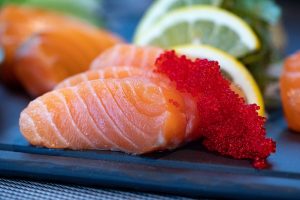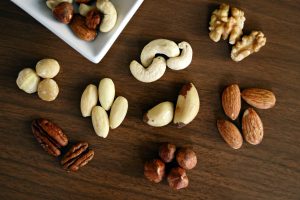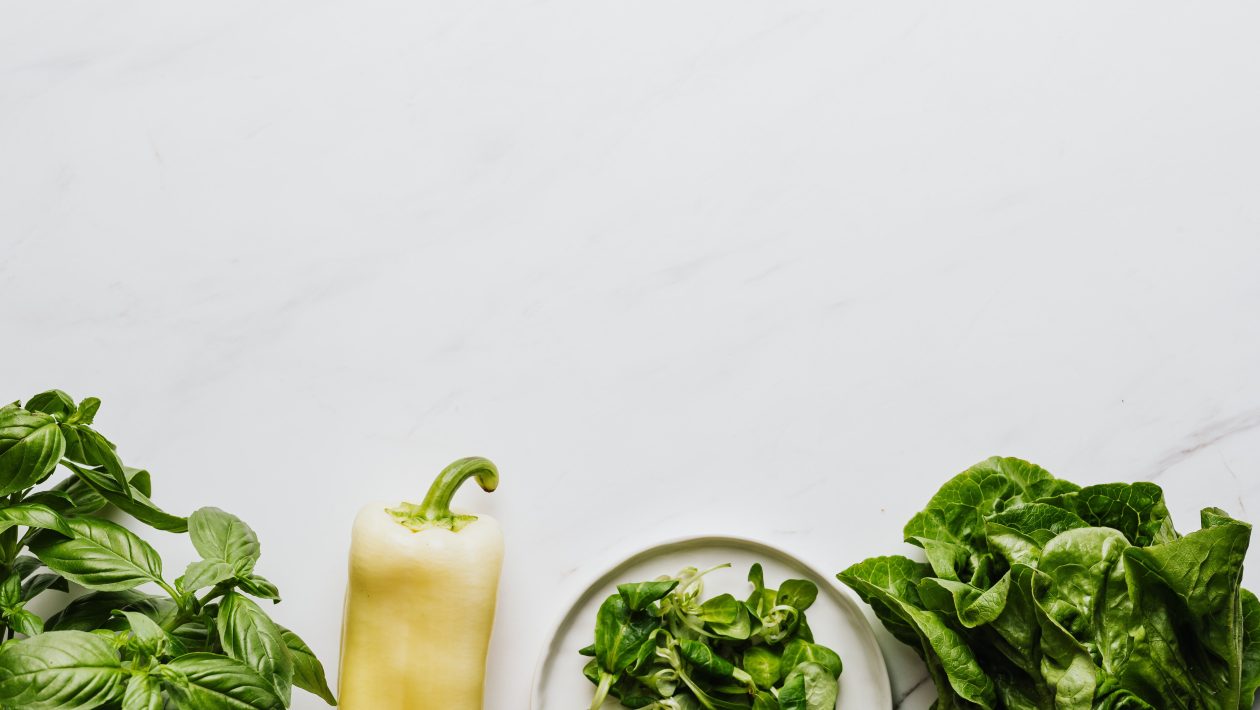From practicing low-impact exercises to tracking your ovulation – are you doing everything organically and yet the pregnancy test result shows negative? Then the missing piece in this puzzle could be your diet. If you aren’t on an implantation-friendly diet, it’s high time you start eating right. So, what foods for implantation should you consume to fulfill your dream of becoming a mother? Let’s find out!
Table of Contents
What is the meaning of implantation?
Before we share which food items should fill your plate, let’s understand what implantation means.
After conception, a fertilized egg searches for a secure place on the uterus lining to attach itself.
This action communicates to your body that you are pregnant and this releases several hormones like human chorionic gonadotropin.
HCG plays a crucial role as it stops your menstruation and you get a positive result when you perform a pregnancy test.
With implantation also begins the process of the embryo absorbing nutrients for the mother’s body and growing in size.
To have more clarity about how it happens, have a look at this implantation timeline:
Fertilization (day 0- day 1)
Once a month, your body ends up releasing a mature egg into the fallopian tube.
The fertilization window for that egg is 24 hours.
The egg must be fertilized by the sperm during this timeframe to transform it into a zygote.
Cell division (day 1- day 7)
The next week is a busy time for the little zygote.
It becomes a blastocyst that travels towards your uterus.
Implantation (day 8- day 9)
If the blastocyst succeeds in burrowing into the lining of the uterus, then voila! Your first trimester begins now.
What does an implantation-friendly diet look like?
Research has proved that a man or woman’s fertility rate is directly proportional to their diet.
Poor nutrition significantly decreases the chances of implantation.
Hence, for someone struggling to conceive, the diet should be such that it can make them more fertile.
You should choose your food wisely to encourage the fertilized egg to get attached to the lining of the uterus.
As surprising as it sounds, there are certain foods for implantation that will make your pregnancy journey easier.
So, it doesn’t matter if you’re a non-vegetarian or a vegan as long as your diet:
- Fulfills your daily calorie needs
- Has replenishing macronutrients (fats, proteins, & carbs)
- Comprises the vital micronutrients (minerals & vitamins)
- Includes unprocessed and natural foods
- Supports female hormones
So, are you ready to know the names of some foods for implantation?
Foods for boosting implantation
A balanced plate adorned with whole foods will be sufficient to encourage your embryo to stick to the uterine lining.
Some special nutrients can convert your womb into a blissful home for the fetus.
From decreasing inflammation to producing progesterone – they will do it all.
Scroll down to have a look at foods good for implantation.
Legumes
Searching for a natural way to make your body release more progesterone?
Then bid adieu to medications and have legumes regularly.
Beans, chickpeas, and lentils are examples of legumes and they are a source of zinc.
People often end up ignoring zinc’s role in female fertility, but it can dramatically increase progesterone levels.
This mineral reduces the chances of miscarriage in the first few months of pregnancy.
1 out of 10 people in the United States suffer from zinc deficiency as they don’t have enough legumes.
So, add options like falafel, lentil soup, fried black beans, and roasted chickpeas to your pregnancy meal plan.
Salmon
Considered a heart-healthy food, salmon is packed with omega-3 fatty acids.
Omega-3s are essential for their cardiovascular health and anti-inflammatory benefits.
But did you know that these fatty acids help prepare a woman’s body for implantation?
Research has proved that a 30-year-old woman’s chances of conceiving doubles if she takes a supplement containing omega-3s.
But why have a boring supplement when you can relish soft and juicy salmon, right?
If implantation is your goal, we suggest you bake the salmon with lemon slices as lemons have vitamin C.
What foods for implantation can you enjoy if you do not like salmon? To ensure your body gets enough omega-3s, you can rely on sardines, chia seeds, mackerel, and seaweed.

Citrus fruits
For the uterine lining to be thick, you must follow a diet supporting the production of progesterone.
Luckily, citrus fruits have vitamin C and this nutrient will never let your progesterone levels drop.
So, medical professionals advise women opting for IVF treatment to take a vitamin C supplement.
You can substitute the supplement with oranges, kiwis, lemons, grapes, and strawberries.
Nuts and seeds
What is it that almonds, peanuts, and sunflower seeds have in common?
It isn’t the fact that they’re the perfect salty snacks you’d like to munch on when watching sports.
Rather, they are all incredible sources of vitamin E which makes your skin glowing and your hair shiny.
Most people don’t know that vitamin E does more than enhancing their physical beauty.
A fat-soluble vitamin and an antioxidant, it boosts progesterone levels.
A study revealed that 67% of women taking vitamin E supplements have noticed an increase in their progesterone levels.
This nutrient also stimulates blood flow to your corpus luteum.
So, it is among the foods to help implantation for IVF.
So, have more pine nuts, almond milk, peanut butter, roasted peanuts, and sunflower seeds.

Berries
Who doesn’t like having berries as sweet treats?
You’ll love them more when you find out that this delectable snack has antioxidants and vitamin C.
The female body needs antioxidants to better egg health and regulate progesterone levels.
The American Pregnancy Association has confirmed that raspberries, blueberries, and strawberries all have implantation-facilitating antioxidants.
So, to support your conception efforts, add berries to your smoothies and yogurt.
Leafy greens
Your mom has always been telling you to stuff your plate with greens as they are incredibly healthy.
Fibrous and full of important nutrients, greens are among the top foods for women.
As calcium, iron, folate, and vitamin C are stored in green veggies, anyone hoping to conceive should eat them.
According to research, folate aids fertility and higher consumption of it means higher implantation rates.
So, spinach, turnip greens, Swiss chard, and Romaine lettuce are some great folate-rich veggies.
Beets
Beetroot is a humble ingredient found in every kitchen and is loaded with nitrates.
The nitric acid present in beets increases the flow of blood to a woman’s uterus.
The outcome is that your uterine lining becomes thicker and more fertile for implantation.
An IVF study discovered that a lady who had beetroot juice regularly had a higher pregnancy rate.
So, doctors recommend IVF patients consume beet and other violet veggies for their implantation benefits.
Need more reasons to buy purple vegetables at the supermarket?
They contain iron, calcium, vitamins C and A, and folate – all of which are essential for pregnant ladies.
The best thing about beet is that it tastes delicious and you can prepare several yummy recipes with it.
You can drink beetroot juice in the morning and relish beetroot salads.
Chicken
Non-vegetarians cannot imagine their lives without chicken.
If you are a meat lover, you’ll thrilled to know that chicken is one of the foods to eat for implantation.
It provides choline and vitamin B12 which are wonderful nutrients during the initial weeks of pregnancy.
Arginine, an amino acid, is also found in chicken.
It keeps the blood in the uterus flowing. So, it is a great idea to have some chicken per day.
Foods to avoid
As we have shared the “healthy” foods list with you, how can we not warn you against the “harmful” foods for implantation?
- High-glycemic edibles: Sugars, white grains, and flour increase obesity and lower fertility rates in women.
- Processed meat: High consumption of bacon, sausages, and hot dogs leads to ovulation disorders.
- Alcohol: Alcohol is a fertility killer as it lowers sperm count and testosterone levels. It is equally damaging for the female body and therefore, it’s better to stay away from it.
Final Thoughts
Now that you know all about the best foods for implantation, you can launch a Mission Implantation more strategically. So, stay happy, maintain a nutrient-rich diet, and don’t take stress.
The wait to become a mother can be frustrating if you have been trying be get pregnant for some time. But being upset isn’t going to help you achieve your motherhood goals. So, even if you aren’t able to conceive at the moment, don’t give up. Medical science has progressed a lot and there are many treatment options available. All the best!
Frequently Asked Questions
1. Which fruit is best for implantation?
Citrus fruits are the best friends of the uterus and they will make your implantation successful. So, you should have grapes, oranges, and kiwis every day.
2. What foods help natural implantation?
Foods that have omega-3 fatty acids, folate, vitamin E, vitamin C, vitamin B12, and antioxidants are excellent for ovulation. You can eat kiwis, spinach, strawberries, sunflower seeds, bok choy, salmon, black beans, and beetroot.

